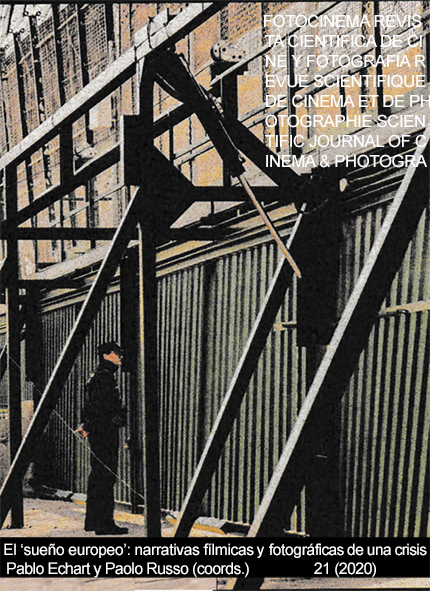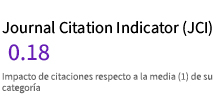Precarity times: work and death. European´s dream crisis in Robin Campillo´s films
DOI:
https://doi.org/10.24310/Fotocinema.2020.vi21.10004Keywords:
Robin Campillo, Precarity, Temporality, Work, Death, European crisisAbstract
The use of temporality in Campillo´s cinema shapes a kind of precarity build from an impasse condense in the figures of work and death. Campillo’s films crystallize situations that engender a deformation of the promise of social inclusion and raise awareness on the “crisis of the European dream”. This strategy rescues the subjectivity of migrants, old, sick, and homosexuals as enablers of an ideal, imaginary community while at the same time shedding light on rarely questioned issues in mainstream productions of contemporary capitalism. Along with the notion of “end of dream”, it generates symbolic escapes though the use of representations of a politic horizon in clear contrast with the threat posed by extreme right movements; it portrays Europe as a continent of migrants and generates political images as a wake-up call.
Downloads
Metrics
Publication Facts
Reviewer profiles N/A
Author statements
Indexed in
-
—
- Academic society
- N/A
- Publisher
- Universidad de Málaga
References
Butler, J. (2006). Vida precaria. El poder del duelo y la violencia. Buenos Aires: Paidós.
Butler, J. (2010). Marcos de guerra: las vidas lloradas. Buenos Aires: Paidós.
Crary, J. (2015). 24/7. El capitalismo tardío y el fin del sueño. Buenos Aires: Paidós.
Deleuze, G. (1991) Posdata sobre las sociedades de control. En Christian Ferrer (Comp.) El lenguaje literario, t.2. Montevideo: Nordan.
Eribon, D. (2015). Regreso a Reims. Buenos Aires: Libros del Zorzal.
Moretti, I. (2019). Muchachos del Este: boceto para des-ordenar los afectos. En Sentirse precari*s. Afectos, emociones y gobierno de los cuerpos. Córdoba: Editorial de la UNC.
Downloads
Published
How to Cite
Issue
Section
License
All contents published in Fotocinema Revista científica de cine y fotografía are protected under the Creative Commons Attribution-NonCommercial-ShareAlike 4.0 International (CC BY-NC-SA 4.0) license. All about this license is available in the following link: <http://creativecommons.org/licenses/by-nc-sa/4.0>
Users can copy, use, redistribute, share and exhibit publicly as long as:
- The original source and authorship of the material are cited (Journal, Publisher and URL of the work).
- It is not used for comercial purposes.
- The existence of the license and its especifications are mentioned.
There are two sets of authors’ rights: moral and property rights. Moral rights are perpetual prerogatives, unrenounceable, not-transferable, unalienable, imprescriptible and inembargable. According to authors’ rights legislation, Fotocinema. Revista científica de cine y fotografía recognizes and respects authors moral rights, as well as the ownership of property rights, which will be transferred to University of Malaga in open access. The property rights are referred to the benefits that are gained by the use or the dissemination of works. Fotocinema. Revista científica de cine y fotografía is published in an open access form and it is exclusively licenced by any means for doing or authorising distribution, dissemination, reproduction, , adaptation, translation or arrangement of works.
Authors are responsable for obtaining the necessary permission to use copyrighted images.














13.png)



